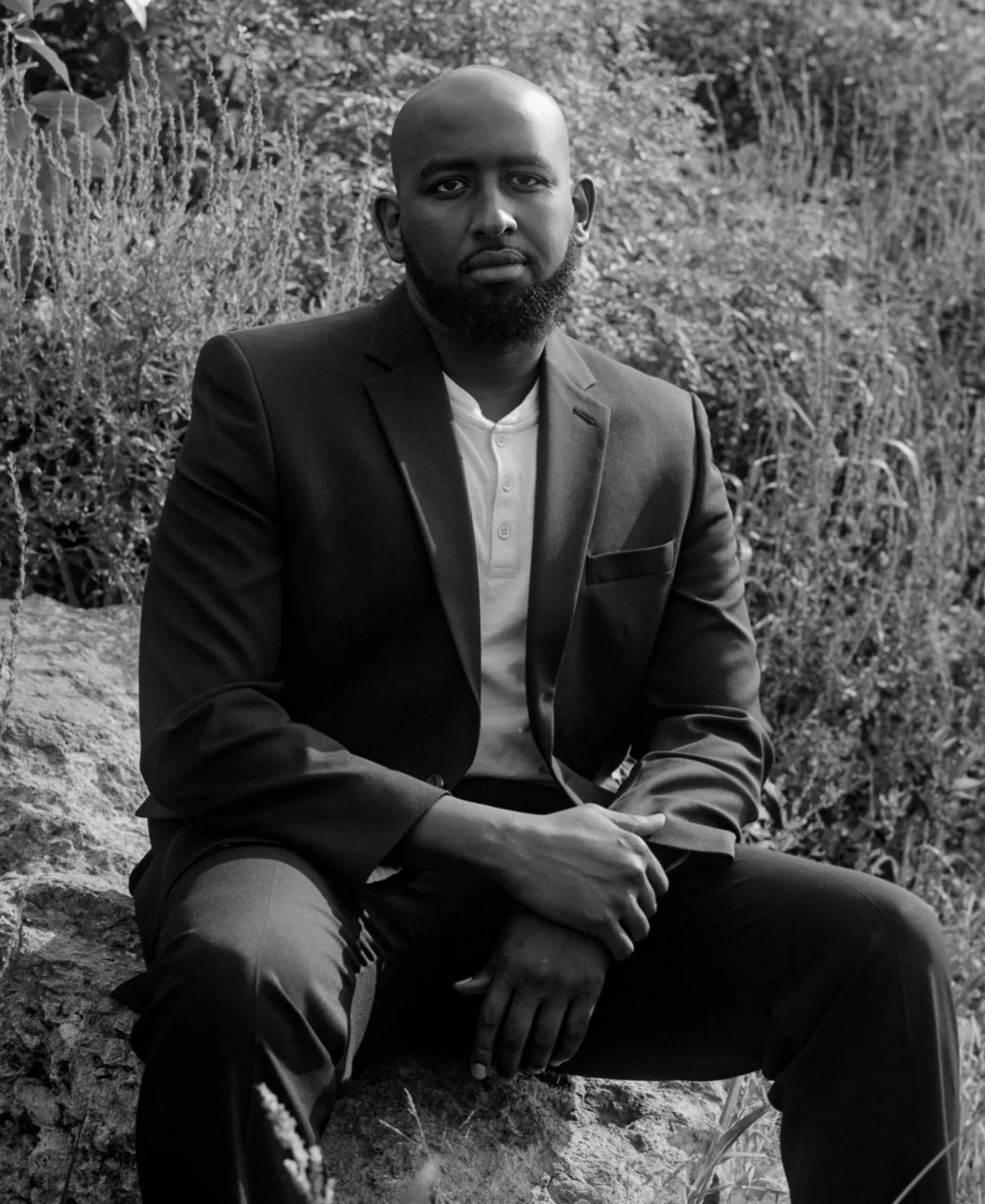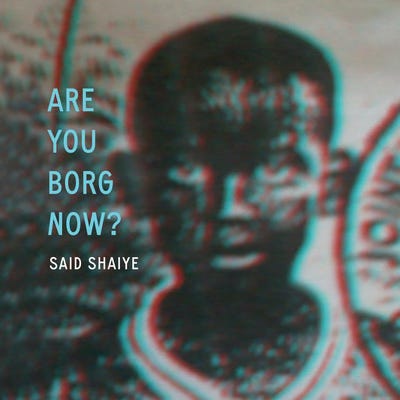When Writing Advice is as Ableist as a Flight of Stairs with the Lights Off
Or how to keep believing you're a writer even when you haven't written in a year
Have you ever been told that if you want something badly enough, you’ll find a way to do it? And so – the sneaky, reverse logic subtext says, sotto voce – if you haven’t achieved it yet, then you don’t really want it?
Writing advice echoes the experiences of the writer giving it. If they were taught to grind away at writing, showing up at 5am with a gimlet eye and a military grimace to rack up those words as if they were antlers on their trophy wall, that will be the advice they pass on.
But what happens when you desperately want to develop a creative skill, to learn and practise and refine it, but you have family duties, a job that overworks you, a bout of poor mental health, or a disability or chronic illness that doesn’t allow for it?
What if you have an idea planned out in your head for years, and it’s not for want of wanting but for want of time, space, energy and concentration that it’s not yet out on the page?
We’re all for building positive habits and consistency with writing, creating those opportunities to coax out your hidden genius, but we’ve also seen (and experienced first hand) how life sometimes throws you a curveball, and the dream gets demoted from ‘urgent’ to ‘if/when’.
To write anything substantial, of course, you need to have some sort of persistence; the celebrated science fiction author Octavia E. Butler once wrote:
“Forget about inspiration, because it’s more likely to be a reason not to write, as in, ‘I can’t write today because I’m not inspired.’ …The most valuable characteristic any would-be writer can possibly have is persistence. Just keep at it, keep learning your craft and keep trying… No matter how tired you get, no matter how you feel like you can’t possible do this, somehow you do.”
True, by deciding to sit down to write – even if it be fifteen minutes on your commute – you give yourself the opportunity for inspiration to strike, and to be ready for it when it does. Often all it takes is a writing prompt to set you off, and one page of venting later, you find you’ve hit your stride.
However, the timeline of achievement can vary dramatically from one person to another. Consistency, yes – but that may mean a few hours every Sunday, rather than 1000 words a day. We’ve heard of English professor who taught classes through the school year and only wrote during summer holidays.
On Saturday, we held a phenomenal Salon gathering with special guest Said Shaiye, author of the experimental Afrofuturist memoir Are You Borg Now?, AuDHD writer, professor and disability advocate who had bags to say on this exact topic.
Here’s how Said responded to a question about how to manage creative energy as a neurodivergent writer, specifically when that energy gets diverted into playing video games:
“I play a lot of Playstation. A LOT. Too much.
“But writing time is not the same as regular time. We can’t control how much creative energy we have, and a lot of that is tied in with how much general energy we have. For example, I’ve been dealing with a lot of issues with my ADHD medication lately. Every since I got Covid last February, it’s not been working as the same.
“How do we factor that into our desire to write or to be known as writers? If you’re only able to call a writer because you write regularly, then you would not be able to call yourself a writer when you were too sick or tired or burnt out to write.
“I push back against those ideas. A lot of writing advice is based in ableism. ‘If you’re not writing every single day then you’re not a writer; you have to want it bad enough’…it’s all baloney. I don’t believe in that stuff.
“I really do believe in listening to your body and being patient with your body. Neurodivergence is not easy to live with. Our lives are not easy. It can be very challenging. Sometimes you don't know if you’re ever going to be okay again.
“And in that moment, if writing serves you to process those emotions, absolutely [do it]. If you’re called to writing, if you’re crying over your notepad, if that’s what you need, do it. But I don’t believe in forcing yourself to write if it’s not there. I don’t think that serves you.”

Chronic illness is a serious hindrance to any creative endeavour, since it can knock energy levels sideways for long periods of time. Banking energy is a vital technique for people who struggle with drops in energy; if you’re experiencing a lull in your writing, perhaps your writing is doing just that, in order to come back with a bounce in its step when it’s ready.
“When I was working with a long Covid doctor,” Said says, “she was teaching me about energy conservation. She was like, ‘If you’re already tired, then just stop. I know you want to finish the thing, but if you push your body past its limit now, it’s going to take you longer to recover your energy after the fact.’
“Similarly, with creative energy, if you’re not feeling it, I feel like the more you push it, the longer it’ll take for it to want to come back.
“Think of it as a child inside of you. If a kid doesn’t want to do nothing, you yelling at them is not going to make them do it. Or maybe they’ll do it, but now they’ll really resent you for it, and they’re not going to want to do anything else you say for a long time.
“Listen to your body, do what feels good and leave shame out of the equation. Shame and able-ism go hand in hand and we’ve internalised a lot of that. I struggle with it, to this day. But I know that I’m never not going to be a writer. This will always be there for me. It’s not something they can take away. I’ve tried walking away. It didn’t take.
“So don’t rush it, take your time with it. Eventually, when it’s ready to come back, it’ll come back, and not a moment sooner. And if it comes back for one day, great. If it comes back and you’re writing furiously every day for three months straight, that’s cool too.
“Overall just listen to your body. And – play more video games.”
Sage advice. (Excuse me while I get out of the demotion zone in Duolingo.) If you can’t rely on a stable supply of energy, try to ride those waves when they do arise, and don’t beat yourself up about not crushing your writing goals in the timeframe you’d hoped for.
(On a personal note, I started a novel over twenty years ago. I am stubborn as a mule with indigestion and haven’t given up on it yet. Inshallah this means I will have done the growing and learning I needed to do when it finally wants to be finished. Pray for me, dear readers.)
Ultimately, the way we treat our writing mirrors the way we treat ourselves. It is a path to self-knowledge like no other.
In his essay in Brittle Paper, ‘On ableism and writing advice’, Said writes:
“Learn to love yourself, however that self is shaped, while you have a chance. Death is coming for us all, brotherman, some sooner than others.
“All that matters is what you do with this life, this body, that you are blessed with.
“Because every breath we take is a miracle, every heartbeat a symphony orchestra…
“Give thanks for every cell in your body. Give thanks for that body. And write about it, whenever your body allows you to write. But don’t push yourself to write.
“Write only when it feels right. Sometimes that’s every day. Sometimes that’s once a year. Give thanks when it does happen.
“And for the love of all that is Holy… stop listening to these snake oil salesmen with prescriptive writing advice. Sitting on mountains of privilege, talking about ‘you can be a writer too… but you must COMMIT to it. Every day you wake up at 4 am, put a coffee pot in one hand, a machine gun in the other, and a pen in your mouth. Then go to war until 8 am. Then go to your day job until 5 pm. Then workout, make a meal, and go to bed by 10 pm. Otherwise, you’re not a writer.’”
“Yeah, okay bro. I’m not a writer. But I am alive… and I think that’s more than I can say for you.”
Is your writing practise making you more alive, or is a productivity mindset stifling your creativity? Comments are open…
Pssst…So are our memberships…visit this link to find out more!







Because in Islam it is more important to be ON the path than at any specific location along it. This is what we pray for in every Fatihah.
Loved this piece, really resonated.
Man, I really wanted to attend, but I fell asleep and couldn't rise from the slumber. Was I listening to my body or was I being lazy? Lol. Probably a bit of both, and the fact that I forgot about the session haha. The alarm went off too late into my nap.
This is really good advice, and it extends to all forms of creativity. It's something I've been practicing myself for a little while now, and so far it works. Though I know myself so I know I could definitely benefit from some of that militaristic mindset too.
Thank you for sharing this. Could you also post Said's socials if he has any?